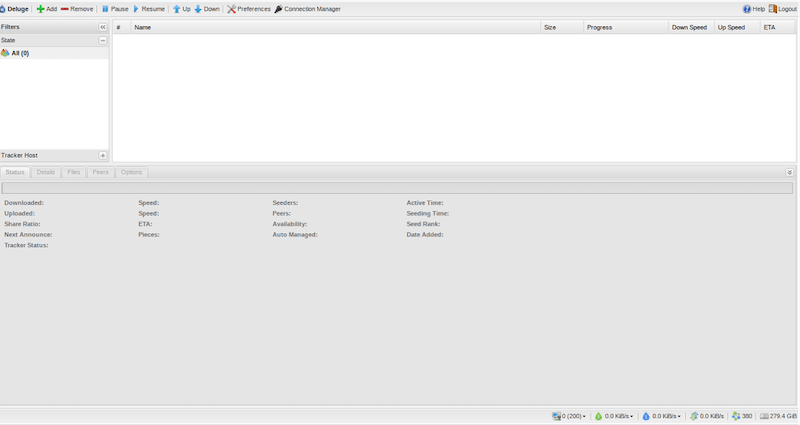How To Install Deluge on Fedora 38

In this tutorial, we will show you how to install Deluge on Fedora 38. For those of you who didn’t know, BitTorrent clients have become a fundamental part of our digital lives, allowing us to download and share large files efficiently. Deluge, an open-source and cross-platform BitTorrent client, stands out for its lightweight nature and high customizability.
This article assumes you have at least basic knowledge of Linux, know how to use the shell, and most importantly, you host your site on your own VPS. The installation is quite simple and assumes you are running in the root account, if not you may need to add ‘sudo‘ to the commands to get root privileges. I will show you the step-by-step installation of the Deluge BitTorrent client on a Fedora 38.
Prerequisites
- A server running one of the following operating systems: Fedora 38.
- It’s recommended that you use a fresh OS install to prevent any potential issues.
- SSH access to the server (or just open Terminal if you’re on a desktop).
- An active internet connection. You’ll need an internet connection to download the necessary packages and dependencies for Deluge.
- A
non-root sudo useror access to theroot user. We recommend acting as anon-root sudo user, however, as you can harm your system if you’re not careful when acting as the root.
Install Deluge on Fedora 38
Step 1. Before we can install Deluge on Fedora 38, it’s important to ensure that our system is up-to-date with the latest packages. This will ensure that we have access to the latest features and bug fixes and that we can install Deluge without any issues:
sudo dnf update
Step 2. Installing Deluge BitTorrent client on Fedora.
- Installing Deluge using the Package Manager
Install Deluge by running the following command:
sudo dnf install deluge
Wait for the installation to complete.
- Building Deluge from Source
First, install the required dependencies by running the following command:
sudo dnf install git python3 python3-pip python3-setuptools intltool gettext desktop-file-utils gtk3-devel libappindicator-gtk3 libnotify-devel libappindicator-devel webkit2gtk3-devel
Clone the Deluge source code from the official repository by running the following command:
git clone https://github.com/deluge-torrent/deluge.git
Change the directory to the Deluge source code by running the following command:
cd deluge
Install Deluge by running the following command:
python3 setup.py build sudo python3 setup.py install
Wait for the installation to complete.
Step 3. Accessing Deluge Deluge BitTorrent Client on Fedora.
Once done, you can launch Deluge from the Applications menu or by running the following command in the terminal:
deluge

Congratulations! You have successfully installed Deluge. Thanks for using this tutorial for installing the Deluge BitTorrent client on your Fedora 38 system. For additional help or useful information, we recommend you check the official Deluge website.